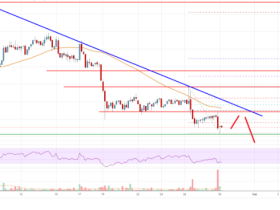When the Ethereum network is preparing to roll out the final phase of its upgrade, a different problem emerges. Heztner, the largest cloud provider in Germany and the world’s number two platform host, has publicly stated its opposition to certain practices.
Hetzner has stated once again that it will not support mining activities related to the Proof-of-Stake (PoS) or Proof-of-Work (PoW) protocols. According to the host’s terms of service, this would undoubtedly affect a number of crucial aspects of the impending Merge.
Hetzner Defines Service Terms
Recently, it came up in conversation that the centralized cloud provider had banned its Ethereum customers from running their own blockchain nodes. In addition, Hetzner stated that it would prevent certain cryptocurrency-related activities on the Ethereum platform.
The Ethereum community, however, was surprisingly unrestricted by the company. The community perceived Hetzner’s action as a threat to the ecosystem of the network. This is due to the fact that Hetzner hosts nearly 16% of Ethereum’s nodes.
A common sentiment in the cryptocurrency community is skepticism of relying on a few large, monopolized companies. It is viewed as a hindrance to the long-term viability of the digital asset industry.
The provider’s anti-crypto policies have been criticized for being restrictive and intolerant by a number of users. In the meantime, Hetzner clarified the legal implications of utilizing its services for crypto-related activities.
The company has issued a statement prohibiting the use of its wares in connection with mining. This includes the operation of nodes, mining, and the storage of blockchain data and other assets. Additionally, the company discussed its permission to power Ethereum, which it admitted is subject to company decision.
The latest innovation once more highlights the drawback of relying on unified service providers. This decision will affect growing crypto enterprises’ ability to expand their operations.
As of this writing, 54% of all Ethereum nodes are hosted on Amazon.com, making it the single largest contributor to Ethereum’s ecosystem. Moreover, the nodes are currently hosted by Oracle Cloud, Alibaba, and Google Cloud, holding 4.1%, 2.8%, and 2.2% of the nodes, respectively.
The Uncertain Future of Ethereum
Since the Ethereum development team announced the release date, the impending Merge upgrade has been the subject of much discussion. Concerning the future of the blockchain network, a number of misunderstandings arise during the discussion.
Inaccurate speculation has also persisted regarding the long-awaited reduction in the network’s gas costs. The transition from the PoW consensus protocol to the PoS consensus protocol benefits the network.
Although increasing network capacity is more directly related to lowering gas prices. The reduction of transaction fees has been at the top of every investor’s wish list, but this will not occur.
The rate at which transactions can be completed on the network following the Merge is another important factor to think about. While the transition will increase processing time, it may be a minor improvement that users do not notice.
Undoubtedly, the overall outcome of the Ethereum network will improve, but to what extent is currently unknown. The community is optimistic about the network’s continued development, but only time will tell for certain.








Leave a Reply